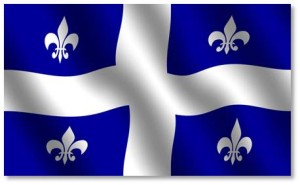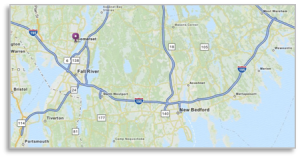 I have been immersed in the French language lately. For our upcoming trip to France, I am listening to Piimsleur French 2 language CDs. I drive down the highway responding to questions in French and listening to the answers to see if I got it right. It’s probably a good thing that other drivers can’t hear me asking them if they want to have a glass of wine.
I have been immersed in the French language lately. For our upcoming trip to France, I am listening to Piimsleur French 2 language CDs. I drive down the highway responding to questions in French and listening to the answers to see if I got it right. It’s probably a good thing that other drivers can’t hear me asking them if they want to have a glass of wine.
This will be my third trip to France and I like to make myself understood and to understand others. While there is no need to speak French on a Viking River Cruise, it does come in handy on shore. The Viking crews are all fluent in English, regardless of which country they come from. When on land, however, it helps to know the French language when purchasing something in a shop, ordering a drink, or asking for directions.
Bienvenue a la Tour
 My other French experience has come from giving ghost tours for Haunted Boston. This spring I have led several tours for children on field trips from Francophone schools in Canada’s Quebec Province. Some of the school kids have excellent English; others, not so much. Either way, I give the introduction to the tour in French. It makes them feel welcome and puts them at ease. Each time I do this, I translate a few more sentences and include them in the intro, which expands my grasp.
My other French experience has come from giving ghost tours for Haunted Boston. This spring I have led several tours for children on field trips from Francophone schools in Canada’s Quebec Province. Some of the school kids have excellent English; others, not so much. Either way, I give the introduction to the tour in French. It makes them feel welcome and puts them at ease. Each time I do this, I translate a few more sentences and include them in the intro, which expands my grasp.
The first time I tried introducing the tour in French, I felt nervous and tried not to mess it up. The one thing you don’t want is for a group of schoolchildren to laugh at you. (Actually, kids from Canada are much too polite to laugh at their tour guide.) Nevertheless, I checked with one of their teachers who reassured me that my French was “very good.” She seemed a little surprised. Me, too.
Growing Up with the French Language
Now, the odd thing about this is that I grew up in a French-speaking culture. When I was a kid, the Fall River-Somerset area on the South Coast of Massachusetts had three predominant cultures: Irish, Azorean Portuguese, and French Canadian. We all played together but went to different churches. Some kinds attended public school but my siblings and I went to St. Louis de France in Swansea, MA, for grades one through six. The Sisters of St. Joseph taught us in full habits and three languages.
We learned to say our prayers in French and some in Latin. I sang French and Latin songs in the choir. I could make my confession in French and we studied French in class.
The nuns tried to make us use the French language version of the “Baltimore Catechism” but we rebelled and got the English version instead. Still, we learned vocabulary, conjugated French verbs, and translated French reading texts. With all that, you would think that it would have stuck.
A Lack of Dialogue
Mais, voici le chose (Here’s the thing): No one ever spoke it to us or engaged us in a French dialogue. Our parents spoke French when they didn’t understand what they wanted us to say. Gossip, medical situations, adult conversations and the decision whether to go out for ice cream were all done in French. Les enfants were not involved. Aside from learning the French word for ice cream (crème glacée), I tuned out.
After one mostly irrelevant French course in high school, I never had use for French again. I do have a good accent, though. You can’t be surrounded by a language without picking that up.
When I went to France for the first time, on a business trip for Prime Computer, I remembered almost nothing. On a cold, rainy March night, though, I commented to the Maitre d’Hotel at a Parisian restaurant that it was a night for ducks, or maybe for dogs. Clearly, he understood because he was still chattering about les canards and les chiens when we reached our table and he was speaking much too fast for me to keep up.
Exploring Bordeaux Rivers and Wine
Then, in 2015 my husband and I took our first Viking River Cruise to the Bordeaux region of France with a few days in Paris afterward. I wanted to do better than the last time, so I studied, listening to a variety of French language CDs and figuring out what I would need to say. It worked!
I asked questions and got answers I could understand. Shopkeepers and a cab driver understood me. When I used my still-rudimentary French to ask our tour guide what a word meant in English, she explained—and then asked me how I came to speak French. I was thrilled.
So, now I’m back at it, listening in the car and talking back to the CD, translating more of what I want to say to the kids and practicing my intro.
Somewhere, Mom is Laughing
Somewhere up there, my mother is laughing. Mom sat with all of us as we did our French homework, patiently explaining sentence structure and verb usage, trying to get us to understand and translate accurately. She not only spoke French fluently, she won awards for her language skills. I inherited two large, beautiful volumes of French stories that she won in French competitions.
 Mom never understood why we couldn’t learn French by studying it instead of speaking it. But it would have been so much easier had she only used French when asking us to set the table, wash the dishes, hang out the laundry, come in to dinner or go to bed. Then we could have gotten used to French’s Yoda-like word order and the convoluted verb structures—my particular bête noir.
Mom never understood why we couldn’t learn French by studying it instead of speaking it. But it would have been so much easier had she only used French when asking us to set the table, wash the dishes, hang out the laundry, come in to dinner or go to bed. Then we could have gotten used to French’s Yoda-like word order and the convoluted verb structures—my particular bête noir.
Better late than never, I guess. I know Mom will be watching when I use my French on this trip. I’ll let you know how it goes.


